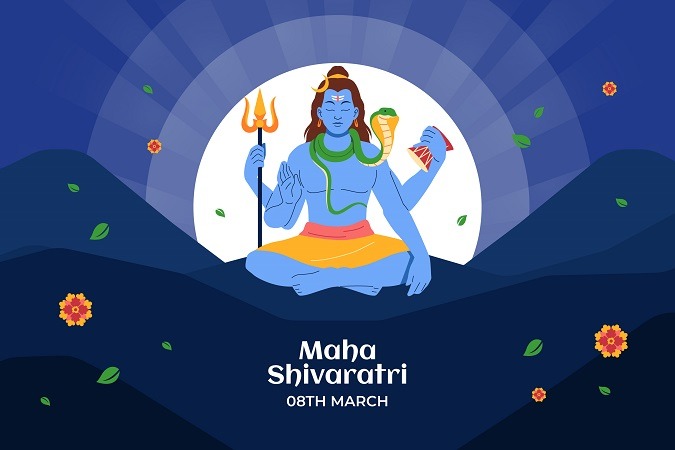
Maha Shivaratri, often hailed as the Great Night of Shiva, stands as one of the most revered and spiritually charged festivals in Hinduism. Observed annually in honor of Lord Shiva, the destroyer and transformer in the Hindu Trinity, Maha Shivaratri holds profound significance not only in religious contexts but also in cultural and spiritual spheres. As devotees prepare for this sacred occasion, it becomes imperative to delve deeper into the multifaceted significance of Maha Shivaratri and understand the spiritual essence it embodies.
The Mythological Roots:
To comprehend the significance of Maha Shivaratri, one must explore its mythological origins deeply rooted in Hindu scriptures. According to Hindu mythology, this auspicious night marks the marriage of Lord Shiva with Goddess Parvati. It is believed that on this night, Lord Shiva performed the Tandava, the cosmic dance of creation, preservation, and destruction, symbolizing the cycle of life. Additionally, another legend narrates the churning of the cosmic ocean (Samudra Manthan), where Shiva drank the poison (halahala) to save the universe, thus earning him the title “Neelkantha” or the blue-throated one.
Symbolism and Spiritual Significance:
Maha Shivaratri carries profound symbolism that transcends mere rituals and ceremonies. It symbolizes the victory of good over evil, light over darkness, and knowledge over ignorance. The all-night vigil (jagaran) during Maha Shivaratri signifies the awakening of inner consciousness and the journey from darkness to enlightenment. Devotees observe fasts, chant prayers, and meditate fervently, aiming to cleanse their souls and seek blessings from Lord Shiva.
The Great Night of Spiritual Transformation:
Beyond its religious connotations, Maha Shivaratri serves as a catalyst for spiritual transformation and self-realization. It is believed that on this sacred night, the planetary positions align favorably, amplifying the spiritual energies and facilitating inner growth. By immersing oneself in devotion, contemplation, and austerity, one can attain spiritual upliftment and transcend the mundane realm to connect with the divine consciousness.
Rituals and Traditions:
The observance of Maha Shivaratri entails various rituals and traditions that vary across regions and communities. Devotees visit Shiva temples, perform Rudrabhishekam (ritualistic bathing of Shiva Lingam with sacred offerings), and offer Bilva leaves, milk, honey, and water to the deity. Many engage in all-night-long bhajans (devotional songs) and recitations of sacred texts like the Shiva Purana and Rudram Chamakam. Fasting holds immense significance, symbolizing self-discipline, purification, and detachment from worldly desires.
Cultural Celebrations:
Maha Shivaratri transcends religious boundaries and unites people from diverse cultural backgrounds in the celebration of spirituality and devotion. In India, particularly in regions like Varanasi, Rishikesh, and Haridwar, Maha Shivaratri witnesses grand festivities, processions, and cultural performances. Temples are adorned with lights and decorations, and the air reverberates with the chants of “Om Namah Shivaya,” invoking the divine presence of Lord Shiva.
The Spiritual Essence of Maha Shivaratri Today:
In contemporary times, the essence of Maha Shivaratri resonates deeply amidst the hustle and bustle of modern life. It serves as a gentle reminder to pause, reflect, and realign with our inner selves. As the world grapples with uncertainties and challenges, the teachings of Maha Shivaratri become more pertinent than ever—encouraging compassion, humility, and resilience in the face of adversity.
Maha Shivaratri, the Great Night of Shiva, encapsulates the essence of devotion, spirituality, and transcendence. Beyond its religious rituals and cultural festivities, it offers a profound opportunity for introspection, self-discovery, and spiritual growth. As devotees immerse themselves in prayers and contemplation on this auspicious night, they embark on a transformative journey towards enlightenment and divine union—a journey guided by the eternal presence of Lord Shiva, the embodiment of cosmic consciousness and eternal bliss.


























































